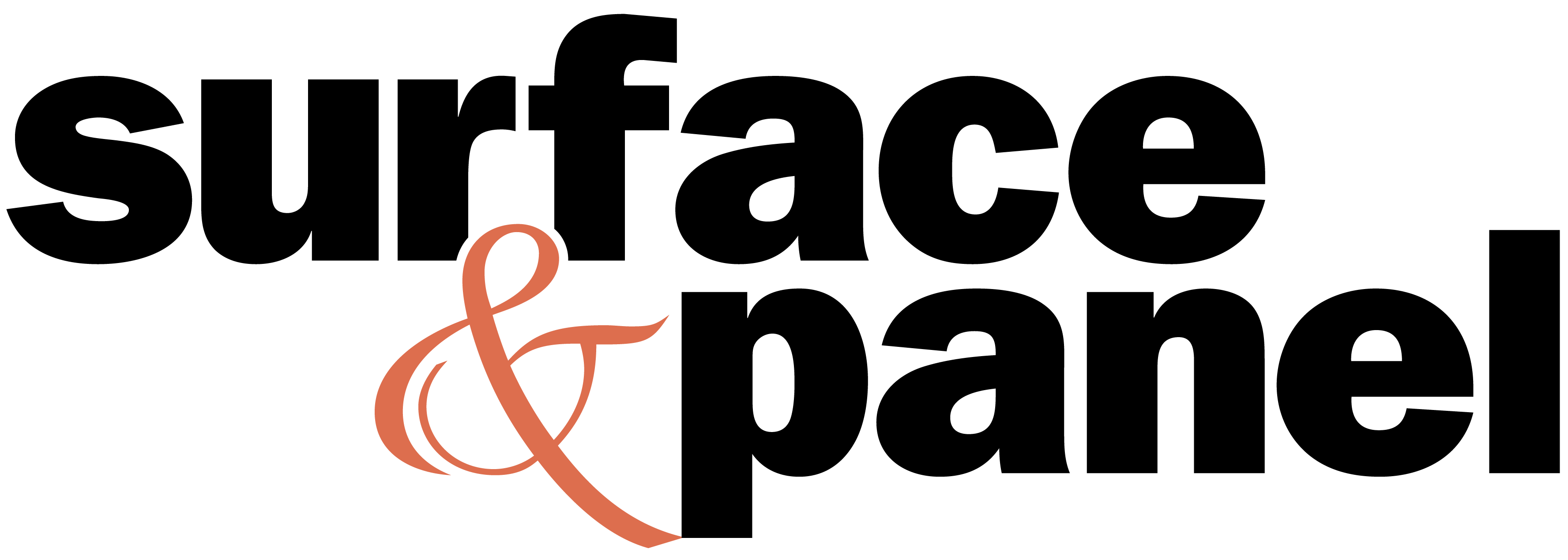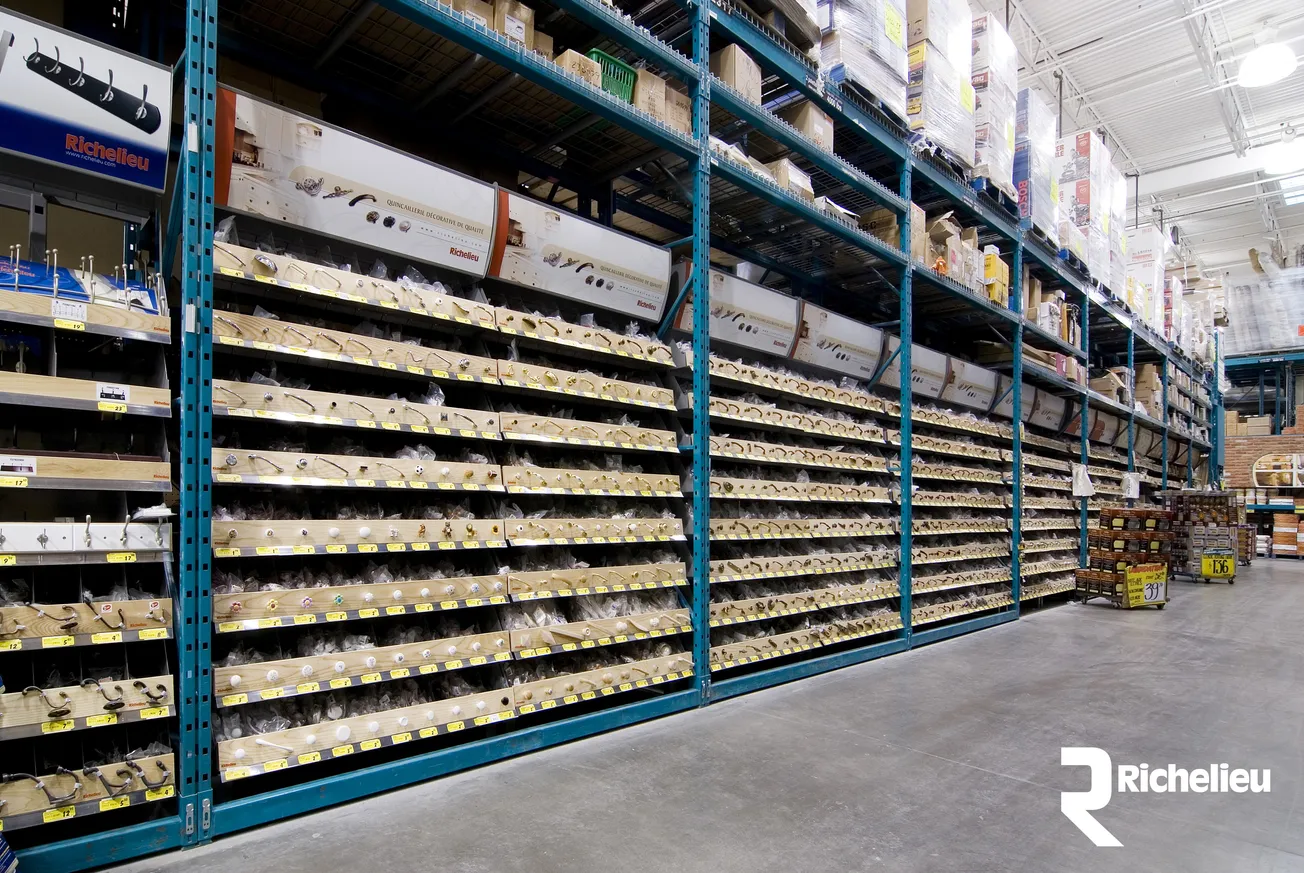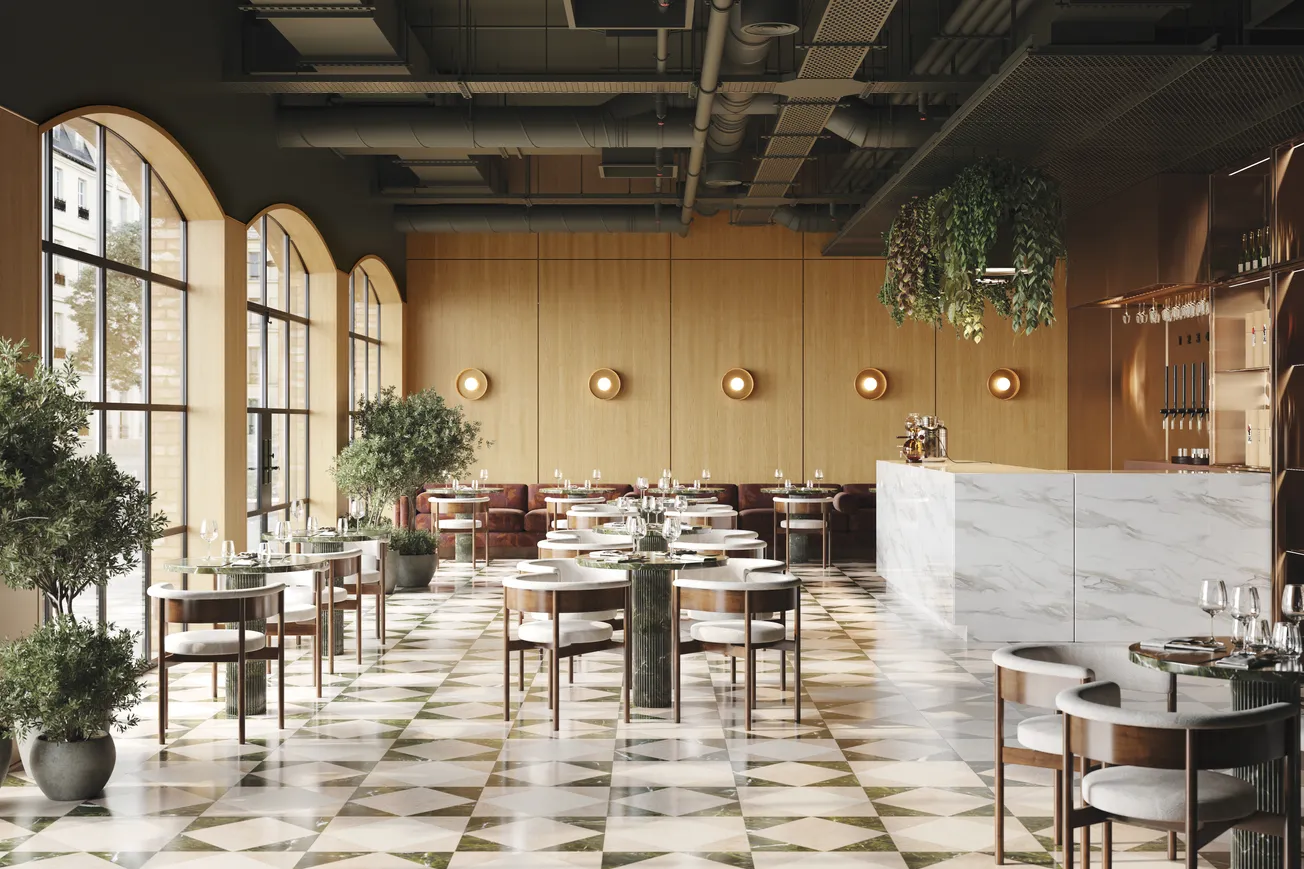Table of Contents
There’s no question that the pandemic has changed the workplace. Work-from-home life is starting to become the new normal for some employees, and others across the globe are slowly starting to return to their offices, but that doesn’t mean it will be the same as when they left. As social distance laws continue to be enforced, employers will have no choice but to provide a safe and healthy work environment for their employees. Manufacturers are taking advantage of this by designing products that cater to social distancing and constant sanitation, in addition to studying evolving design trends. Products like privacy screens, face shields, and antimicrobial laminates and surfaces are making their way into offices everywhere to ensure employee safety.
“We’re seeing a huge uptick in 3DL & 2DL Thermo-foil lamination for walls and surfaces and not just in hospitals now,” said Scott Flom, Genesis Marketing Manager. “Before the pandemic, this product was primarily popular in clinics and hospitals, but because these laminates are easy to be cleaned and very durable against chemicals, they are perfect for modern office desks and surfaces as people begin to return to work. It’s also easy to implement new designs. Those are a few reasons, in my opinion, why we’re seeing an uptick in that material.”

“Holistic wellbeing and hygiene are two design factors that will be making a huge influence,” said David Gerson, Chief Brand Officer for Inscape, who highlighted one trend that will continue to take shape, curved edges. “Everything is curved now. A curved radius edge not only looks pleasing but it’s also very easy to clean. We’re going to see more people demanding biomorphic shapes that feel natural,” he said. Gerson went on to explain that whether people are working from home or returning to the office, employees want a sense of tranquility, now more than ever. “It’s the idea of taking nature with you. Like going for a walk in the park. People want a workspace that makes them feel at peace and for most, that’s being one with nature, in a realistic way of course. They want big windows and woodgrain textures. Things like this truly make a difference for both physical and mental health.”
But it’s not enough to have surfaces that are easy to clean and stand up to the toughest of chemicals. According to Joe Arcadi, VP of sales and marketing for Genesis, lightweight materials are just as important.
 “We’re in an unpredictable time right now and it’s important to be flexible. This means having lightweight materials—desks that can move around and that are easily collapsible. If you have to move to another part of the office, it shouldn’t be a difficult task. We’re offering products that are 30% lighter and we’re seeing a great response from that. Having desks nailed to the floor is a thing of the past.”
“We’re in an unpredictable time right now and it’s important to be flexible. This means having lightweight materials—desks that can move around and that are easily collapsible. If you have to move to another part of the office, it shouldn’t be a difficult task. We’re offering products that are 30% lighter and we’re seeing a great response from that. Having desks nailed to the floor is a thing of the past.”
“The ability to easily transform workspaces is a new office trend. It’s about being able to adapt when you’re in a situation that’s constantly changing,” he added. “In addition, you want your office to be safe and easy to come back to when your employees return.” For those who have returned to the office, Arcadi emphasized that people are focusing on reflective noise. “More people are asking about acoustic performance.
They want materials that are sound absorbent. That’s why PET (polyethylene terephthalate) has been embraced by so many,” Arcadi explained. “It’s lightweight, sleek and has tremendous sound barrier capabilities. You can also add decorative surfaces to PET and the material can be molded to shape.” Genesis’ PET privacy screens have grown to be increasingly popular over the last few months as social distancing has become a major priority. “Some businesses have the luxury of spreading out employees to assure they’re six feet apart. Others have to invest in products like these to protect their employees’ health. Management teams need to be flexible right now. If an employee isn’t comfortable, they need to ask themselves: what do I need to do make sure I am comfortable?”
The pandemic has caused manufacturers to rethink their offerings, as they start seeing a high demand for products that cater to sanitation and social distancing. Cooper Industries caught on to this demand by offering several different products that ensure privacy. “Both our marketing strategies and product offerings have shifted,” said Rachel Brumenschenkel marketing strategist for Cooper Industries.
“Since the pandemic, we have been focusing on creating safety products such as acrylic shields, table dividers, freestanding floor partitions, face shields, etc. for a variety of environments. We’ve been promoting these products to new markets and have created an online store as the demand for safety products continues to rise,” she added. Cooper’s cubicle wall extenders are designed to be easily placed between cubicles and other workspaces. The extenders are made of clear acrylic and measure 23.50" tall. The acrylic inserts into black feet that attach to the cubicle wall. The feet fit standard 3" cubicle walls and no drilling or tools are required for installation.
The product is perfect for offices that have more than ten people returning to work, and is great for employees dealing with customers face-to-face. Cefla is another company noticing a demand in products that cater to social distancing. Only this time, specific for fabricators. The company’s Ubiquo Teleservice Kits provide a relevant benefit: preventing non-essential individuals, such as technicians not employed by the fabricator, from having to enter their facility. In most cases, finishing line challenges can be resolved from afar, faster, and with less financial impact. The company also offers customers access to video tours of their facilities online, giving them a one-stop virtual experience.
When it comes to antimicrobial benefits, hardware manufacturers are developing products that have protective features. “Avoiding germs and creating a safe living environment have become increasingly important these days, especially when it comes to points of frequent contact like door handles,” said Laurie Doherty, creative director, Nostalgic Warehouse. “There are natural antimicrobial qualities of brass doorknobs and hardware. An unlacquered solid brass doorknob actually has a chemical reaction that helps reduce germ build-up: a virus can survive just minutes on a copper or brass surface,” she said.
Other companies are focusing on the chemical side of things. Omnova released a report after the EPA published a list of disinfectants that meet its criteria for use against COVID-19. The company tested disinfectants like Asepticare, OxyCide, Wex-Cide and 17 others that are approved for use against the virus on its surf(x) 3D Laminates. Since Omnova prides itself on having laminates that are specifically designed for the healthcare industry, it makes sense that they would go through with the testing, as it’s been said that 3DL will be much more common in not just healthcare facilities, but offices and other workplaces.
The transition back to regular workplaces can be a challenge for those who have spent the last few months working from home, noted Lauren Stredler, account executive for Assa Abloy. “Over the last few months, many workers have adapted to the work from home lifestyle and when they return to the office, there will be many employees expecting to return to a similar environment,” she said.
“Many designers and architects are keeping this in mind and exploring new ways to bring the warmth of home into offices to create a more comfortable and collaborative workspace. Industry experts are referring to this new trend as ‘resimercial’—the combination of home and work environments.”
Stredler went on to explain that as more companies implement return to the workplace plans, safety will be top of mind. Part of this process will include repeated and thorough cleaning and sanitizing protocols.
“The challenge is, many traditional commercial doors are not designed to withstand such rigorous cleaning cycles. That’s why we’re offering smooth grain doors. They provide a unique opening solution that combines the strength and durability of steel doors with the beautiful and comforting feel of wood, fit for commercial office space, schools and healthcare facilities.” Designed to withstand rigorous cleaning cycles, the doors give architects and designers freedom not typically offered for commercial spaces to create a warmer environment.
 In addition to these evolving trends in the workplace like walls covered with antimicrobial paint and rounded corners to minimize bacterial deposits, there are also other elements that we can expect to see when returning to the workplace. This typically depends on the overall size of the operation and how many employees will be in the facility. “Obviously the smaller the team, the easier it is,” said European developer Liviu Tudor. “It’s going to be different for each organization. With countries around the world slowly easing the lockdown and promoting going back to work, the question remains on how buildings need to operate and manage crowds-and what the future of the office is.”
In addition to these evolving trends in the workplace like walls covered with antimicrobial paint and rounded corners to minimize bacterial deposits, there are also other elements that we can expect to see when returning to the workplace. This typically depends on the overall size of the operation and how many employees will be in the facility. “Obviously the smaller the team, the easier it is,” said European developer Liviu Tudor. “It’s going to be different for each organization. With countries around the world slowly easing the lockdown and promoting going back to work, the question remains on how buildings need to operate and manage crowds-and what the future of the office is.”
“With larger companies, we could start to see more extreme measures being taken, like building entrances providing temperature scanning equipment and digital display units that will be placed in receptions to show immunity-boosting indicators such as daily improvement of indoor air quality. We’re already seeing businesses require customers to have their temperatures taken before entering, and we can expect that with larger operations in our industry.”
There’s no question that the normal paradigm is challenged for sure. Management teams are constantly finding new ways to help their organizations adapt to this new normal. “It’s about designing with your ears and not just your eyes,” said Gerson. “When employees come back, they’re going to want to know that they’re protected. Things are changing. The way we work, travel, consume food. How you can change your space to adapt to these new realities is going to be critical.”








